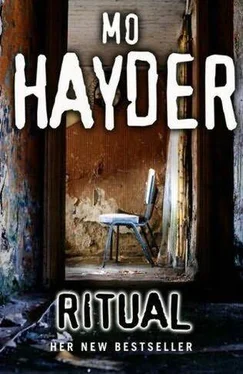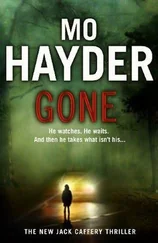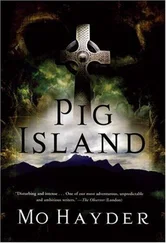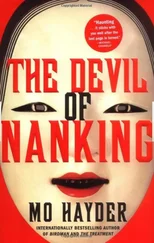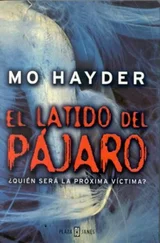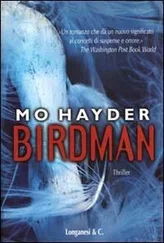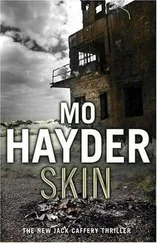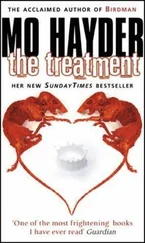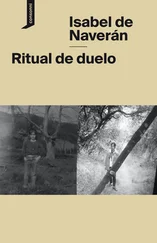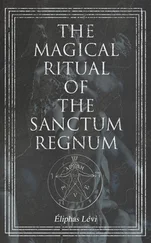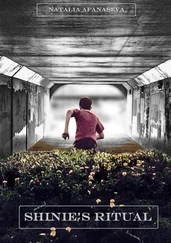When Caffery took the book she could tell from his eyes that he was looking at something monstrous. She could half see its reflection, but more clearly she could see the effect it had on him.
'Can I look?'
He held out the book for her to see. The photo showed a man in rolled-up shirtsleeves holding up a small dried-out corpse, flattened into a round, blackish pancake the way rabbits and badgers were flattened on the local Somerset roads. The black arms were out to the sides like an angel's, the squashed head turned sideways, mouth open. She felt a finger of unease work its way up her back as she stared at this strange, twisted corpse.
'An ex-colleague in Nigeria got hold of the cadaver,' Kaiser said. 'In fact, he paid for it, almost three thousand rand I'm told, because the man drove a hard bargain. It turned out to be a baboon with a human skull grafted on to it, both burned then left out in the sun. I think there was a police inquiry, but they never found out whose head it was. One assumes it was retrieved from some unfortunate's grave.'
'And this was in South Africa?'
'Yes.'
'Is Tokoloshe specific to South Africa?'
'Water sprites like him crop up all over the continent with different names — the crocodile god, for example. But in South Africa and up into parts of Malawi, Mozambique and Zimbabwe he's the Tokoloshe.'
'What about the tradition of offering him a bowl of human blood?'
'Human blood? Yes — off the top of my head I'd guess that tradition comes from Natal or Gauteng, not from the Cape.'
Caffery grunted. 'Thank you.' He closed the book and got to his feet, holding out his mobile phone to Kaiser, showing him the screen. 'Anywhere round here I can get a signal?'
'There's a mast in the north of the valley. I don't use a portable phone but I'm told one can get reception from the back of the house. Go through the conservatory.'
Caffery left the room, and Kaiser — suddenly seeming a little lost — sat back, deflated. Neither spoke for a while. She stared at him, the droopy brown eyes, the huge head and the thought of the way he'd appeared to her in the doorway: an animal skull in a white shirt. She'd always thought she and Kaiser were close — now she wondered whether she knew him at all.
'The videos,' she said eventually. 'Dad knew about them, didn't he?'
Kaiser sighed. He inclined his head, nodding almost imperceptibly. 'I can't lie to you, Phoebe. Yes, he knew.'
'He was involved in the experiment, wasn't he? I heard you talking about it the night before the accident.'
'This is something we shouldn't be discussing. David is gone now. He can't explain it to you because he hasn't got a voice any more.'
'No,' she said bitterly. 'No, he hasn't.'
Kaiser shifted in the chair. 'Well? Is that what you came here for?'
She didn't answer. She didn't want to tell him about Mum and Dad's bodies being found, or ask him how she'd known it would happen; she didn't want to talk about ibogaine or whether she'd been on the computer during the trip. No, she decided. I won't tell you anything. You said once that there are roads I have to travel alone, and you're right. This road is a long one, and at the moment I don't trust you to walk it with me. She closed the book, shutting away the picture of the awful dead Tokoloshe.
'Phoebe?' Kaiser said, but she stood up and left the room, going down the corridor, into the conservatory to find Caffery.
He was standing in profile with the phone to his ear, looking out at the valley. He ended his call and turned. 'What?' he mouthed through the glass. 'What is it?'
She opened the conservatory door, stepping out into the sunshine. There was the smell of mould, grass clippings and distant cows. She saw he was still shaking, just a little.
'Are you OK?'
He nodded.
'What is it?'
'Nothing.'
'Nothing?'
'I thought you were in trouble, OK? Back then, when you were in that study. I was wrong, but it doesn't change the way I thought I was going to come in and find you-'
'Yes?'
He bit his lip and shot her a sideways glance. Although the side of his face nearest her was in shadow there was enough light for her to see him clearly — and she couldn't help staring. His tight, slightly feral face was tired and defeated. 'Not now,' he said turning back to the horizon. 'Not now.'
She blinked, tried not to stare. 'Is that all? Is that the problem?'
He shook his head, and now she saw there was something else on his mind.
'What? What is it?'
'Jonah.'
'Oh, Christ,' she said flatly. 'What?'
'Something his family didn't mention before — something that turns it all round, that makes me scared for him,' Caffery said.
'Makes you scared?' she whispered, a soft whump of panic under her solar plexus, as if someone had punched her there. 'What? What didn't they mention?'
'Mallows. He and Dundas's lad-'
'Oh, shit.' Flea felt as if something was falling inside her. Suddenly she saw it: the same habit, the same background. Of course — of course. They must have known each other. 'Shit. I know what you're going to tell me. Shit, oh, shit.'
Caffery pocketed his phone, took out his keys and headed away from her, back round the side of the house. She followed at a trot, drawing level with him at the front of the house. He was picking up his jacket from a rusting garden roller. He glanced at her. 'It's OK. You go back to Kaiser.'
'What are you doing?'
'I'm going to work.' He put on the jacket and went towards his car.
'No.' She kept pace with him, walking fast alongside him. 'Wait.'
'I'll call you as soon as I have anything.' He got into the car and slammed the door. The keys were in the ignition and he'd started the engine when she ran to the front and put her hands on the bonnet.
He rolled down his window. 'I'm sorry?' he said. 'You're in my way.'
'Yes,' she said. 'Yes, that's right.'
'And you're going to stop me leaving.'
'I want you to wait. Let me get my keys so I can come with you.'
'Movie stuff, you mean?'
'Movie stuff.' She pointed at him, an index finger like a gun, trained on his forehead. 'Now, you.' She jabbed the finger at him. 'You don't go anywhere. You wait there while I get my keys.'
Flea followed Caffery in his beat-up car. He drove it fast through the country lanes, brushing through the lush hedgerows, as the smells of horses and pollen came through her window. She had to concentrate to keep up. Along the A38 to the city and into the side roads near the Easton area, through neighbourhoods with graffitied walls where men sat outside newspaper shops playing chess on trestle tables, under flyovers and past warehouses, until at last Caffery slowed, checking out of the window and eventually stopping at the corner of a residential road.
She parked her car, locked it and went to him, opening the door and getting into the passenger seat. 'What're we doing here?' she said. Across the road a church, a bookie's and a supermarket were squeezed into one block.
'The supermarket,' he said.
She leaned forward and peered at it. 'Eezy Pocket,' said the red and yellow sign. There were grilles on the windows, a newspaper hoarding with local headlines at the entrance, and one or two kids hanging around outside, looking shiftily up and down the street as if they were waiting for someone. 'What about it?'
'I don't know.' Caffery tapped the steering-wheel thoughtfully. There was a long silence. His shirt was very white against his skin, his dark hair clean but half wild. And she noticed he'd got back that look — the one that made her think he was working hard to hold something in.
Just when she was about to say it — Christ, I know how you feel — he held up his mobile phone. There was a picture on the screen of a small, ratty-looking black guy with a slopy head wearing a white shirt and a tatty brown corduroy jacket.
Читать дальше
